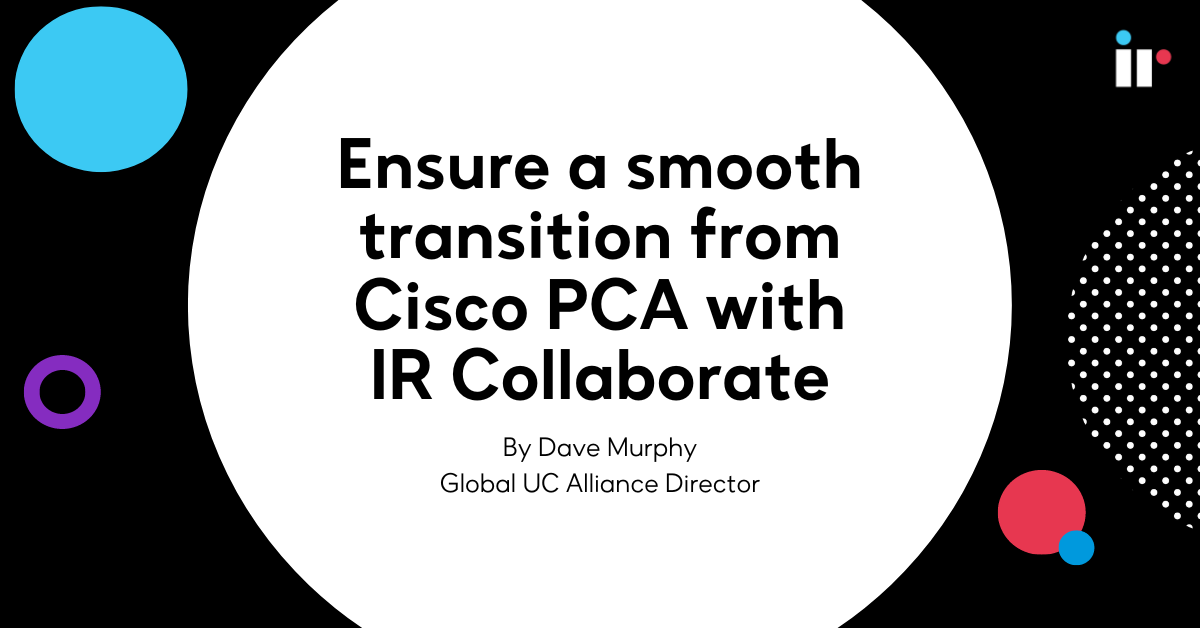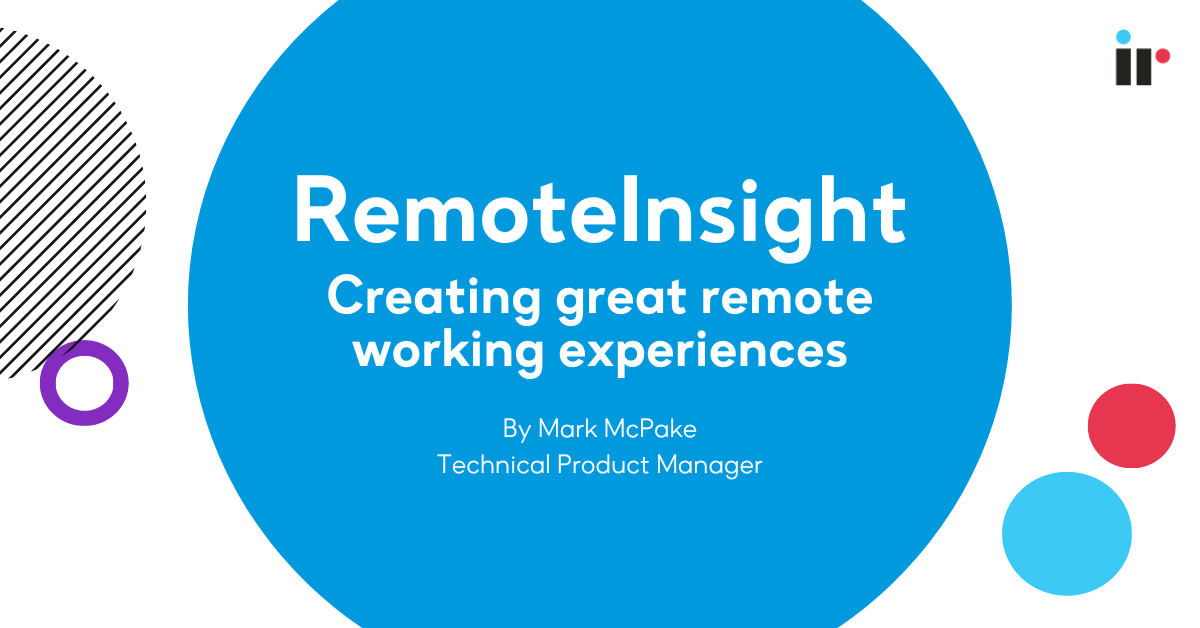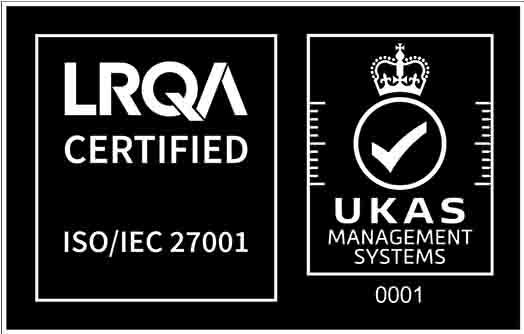Skype for Business and Microsoft Cloud are redefining collaboration. Forming the cornerstone of Microsoft's Universal Communications strategy, to enable real-time collaboration across any device, the next step is to introduce full PSTN functionality in Skype for Business. In this recent interview posted to the IR-Podcast, Eric Bauer - Head of Product Marketing, shares his thoughts on how Microsoft is working toward their vision of modern collaboration.
Audio Transcript
Eric: You know, I think it's a little bit of both? I think what's going to happen is, you know, they're going to deliver great business value and as a result they may well take over the world, right? And kind of let me explain that. So, you know, they're starting with back in April, you know, the Skype for Business client went GA. So it's now available. So now everybody that was using Lync is now seeing the new interface or has the opportunity to see the new interface. In addition, you have those 300 million people that are on Skype today. So Microsoft laid out this vision of universal communications. Anybody can talk to anybody else anytime anywhere from virtually any device. Now, that sounds great but in practicality it becomes a challenge. So what they're doing and what their vision is to move all that workload into the cloud. So where before you could do maybe a little bit of IM, maybe a little bit of chat and you know, maybe internal PC to PC calling through the cloud, they're starting to roll out the capability to do full PSTN connectivity from Skype for Business online. So what does that mean? You know, in today's day and age, you can go onto Skype and you can get a Skype phone number. Tomorrow, from a business perspective, you'll be able to get a Skype for Business phone number. So they are becoming a carrier. As a result you'll now have one place to go from a communications perspective to really be able to drive what your organization needs to communicate and collaborate all through the Microsoft cloud.
Scott: So help me figure this out then. As a small business owner, okay, I can get a Skype phone number. So you say I can steer them in one direction but I'll still have the website, right? I'll still have my, you know, social media handles and all that sort of thing. So how does it help consolidate the one stop, the one point in which I'm driving my potential customers?
Eric: Sure. So imagine this. You have a situation and there's definitely value in the small business, but there's also value in the enterprise and that's really the market where Microsoft wants to continue to grow and gain revenue. Because you look at Skype and Skype has a lot of free capabilities that maybe the very small businesses can use without cost. But imagine this. You're a large organization and maybe you sell to a lot of these small businesses out there, these hundreds or thousands of small businesses. So before, where you had to pick up your regular telephone, maybe call their regular telephone, you know, you really didn't have video communication. It was pretty much just phone to phone communication. You couldn't share screens, you couldn't really collaborate. Well now, imagine that this small business has Skype and this large organization that sells to this small business has Skype for Business online. Well now I have a seamless communication path where I can do video chat, I can collaborate with screen share, IM, as well as make audio calls. So now I'm really bringing together not only my supply chain but also my customers. Part of it's driven from on-premise activity, part of it's driven from cloud and it really breaks down the barriers to make it almost seamless so you can really start to see the value of being able to collaborate all over a single platform whether it's Skype or Skype for Business.
Scott: And I can do it single platform and multiple devices at any time?
Eric: Exactly. You know, it's interesting where, you know, I'm a very proud Microsoft Windows Phone user. I think I I'm part of the three percent in the world that actually has a Windows Phone. But I was up on Microsoft's campus not too long ago. And you know, they talked about the fact that although the Windows Phone platform itself doesn't have a huge market share, they're starting to own the other devices. So if you look at Microsoft Office on and iOS device, on an Android device, it's becoming the go-to application for collaboration, document creation, et cetera. You also look at Skype. Skype runs on iOS, runs on Android, right? The Skype for Business client also runs on those platforms. So unlike the Windows desktop where they own the hardware and they own the OS, they're quite happy to have things like iOS and things like Android where they own the application on top of it. So it's kind of almost exactly opposite of how they became, you know, prominent by owning the operating system to now owning the application and owning the device.
Scott: Some would say it took them a while to get there, but better late than never.
Eric: You know, that's one thing about Microsoft is that they're often ahead of their time, but they continue to drive towards it. They continue to believe in that vision. When, you know, Skype for Business was first released, it was, you know, quite some time ago and I think it was LCS Lync Communication Server or Microsoft Communication Server turned into OCS, Office Communication Server. There were many, many iterations where we started to hear chatter that, you know, these guys will never get it right. But you know what, in true Microsoft fashion, the first release might not have been the perfect release, but they're going to own that business when they put their muscle behind it and I think they've really started to achieve that in online communication and collaboration.
Scott: So in terms of time-frame, what's the ETA? When do you think Skype for Business will take over the world?
Eric: So they're going to start with PSTN delivery, it looks like sometime mid-summer. And that's really going to start the ball rolling. But if you look at the outlook and how they're growing, they were recently named to Gartner's Magic Quadrant for not only unified communications as a leader, but also in corporate telephony. So you're starting to see that process really starting to take over. So I would say in the next couple of years they're going to deliver on this vision of universal communications and their world domination is going to start to take off.
Scott: A recent survey conducted by IR of over 200 companies in 44 countries reveals that delivering an excellent end-user experience in a multi-vendor environment is critical to Skype for Business success. For more information, visit IR.com.





